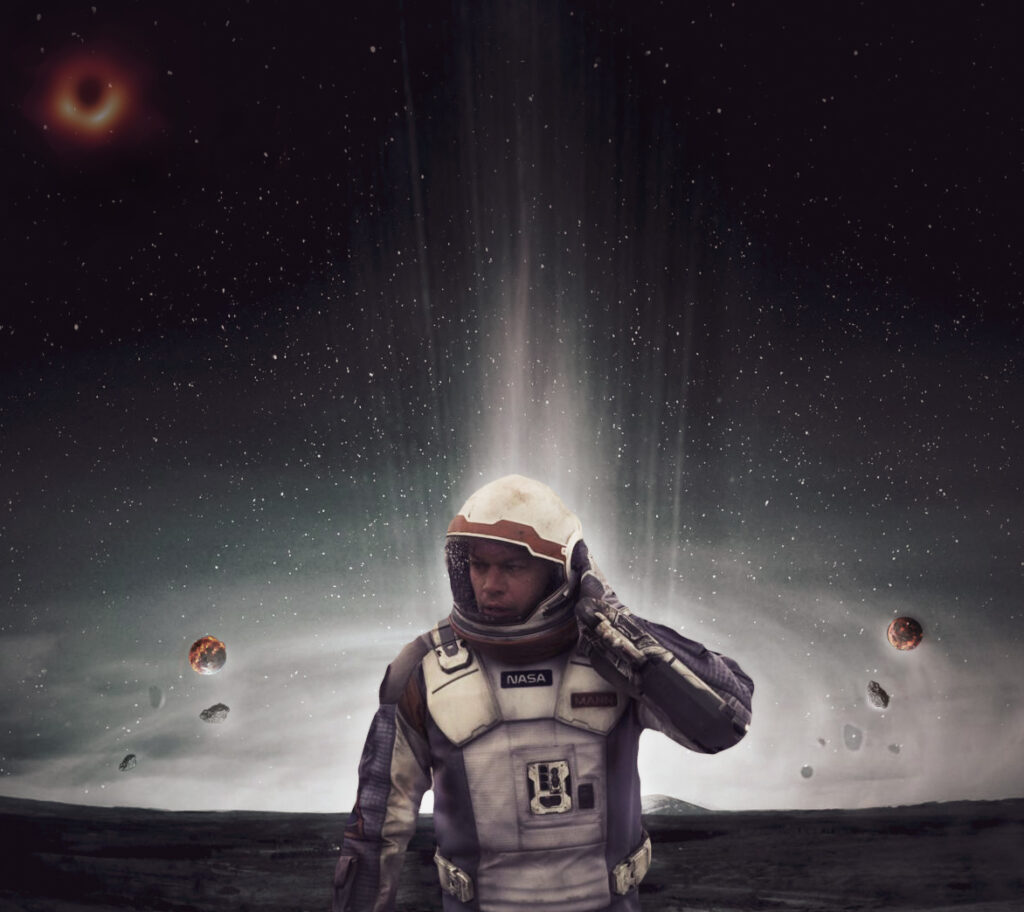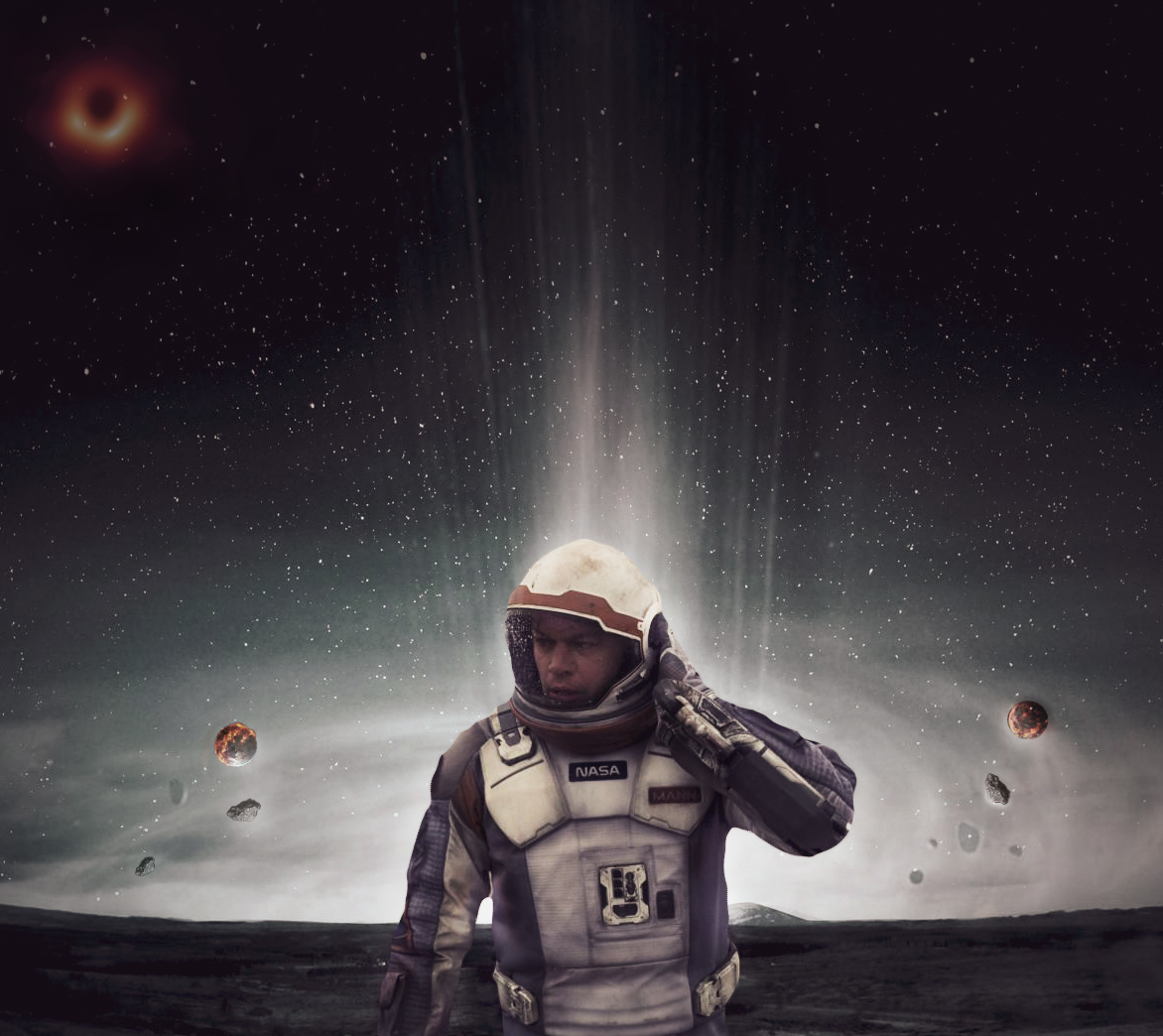
“Do not go gentle into that good night,
Old age should burn and rave at close of day;
Rage, rage against the dying of the light.
Though wise men at their end know dark is right,,
Because their words had forked no lightning they
Do not go gentle into that good night.”
I almost laughed at Professor Brand when he first recited the poem by Dylan Thomas to us. The poet meant it for his dying father, and as we embarked on the journey to save the fate of humanity, I was sure we didn’t need another reminder of how fatal it was. But then, as we were about to split and explore our planets, I found myself stealing his precious lines.
“Dr. Mann,” grinned Miller, “you are the last person we would expect this from.”
I looked at her and then at my other comrades. They were indeed laughing at this anomaly. I wanted my parting words with them to be something humorous — more apt to my personality. However, as I looked into their eyes, one last time, I understood what the old man meant.
“I…I want you to live, I faltered and the laughter stopped. “To rage against death. I want you all to come back to me!”
The words were pointless, obviously and yet these idiots got emotional. They were idiots, I was sure of it. Who else would throw their lives for an idea coming from the guy who thought it was hilarious to send his senior a box of laxatives on Christmas? Professor Brand still believes it was Edmunds.
“We trust you with all we have, Mann,” said Edmunds as he put his hand on my shoulder. “You don’t dare to take the blame and flatter yourself by thinking that you were the only one who believed in this expedition. We are the best of NASA. We are humanity’s heroes. Till the end.”
We are, I thought. Although, I silently thanked him for being so extravagant that it made me look better.
“I guess this was the dramatic speech you all were waiting for. Now get out there. Show that our bravery isn’t our willingness to die, but our daring to survive against all odds.” With that, we all set out on our missions.
…
“You’re beautiful,” I said to the expanse of white mass in front of me.
The jagged rocks covered with layers and layers of snow, the perennial stainless white of the sky and the possibility of life that lay beyond made me giddy to the stomach. I gingerly landed on its surface and stepped out of the spacecraft. I held my breath as one would do in front of their first love.
It didn’t take more than a day for my first heartbreak to trip me on the cold ground. This planet had nothing. It showed absolutely no signs to support human life. It was my hell masked in the colours of an angel. For days, maybe months, I still ventured on to find even the slimmest possibility of achieving what I deserved. I never thought my planet wouldn’t be the one, but as the cursed realisation settled in, I lost my well-reputed cool. I kicked the snow-capped rocks, almost destroyed one part of my spacecraft with the planet’s ugly stones.
How childish, you would say. Best of NASA? You would mock!
Just when things couldn’t get any worse, the survival instinct kicked in. I was lying down on the hard surface when the freezing breeze took the shape of some familiar faces. The torrent of memories washed over me as I laid there — paralyzed.
…
Ten years ago
“Dr. Mann, please calm down,” said the government official, Mr. Jefferson.
“You’re shutting down my life’s work! You’re giving this country’s most valuable scientists these preposterous letters saying to go pursue food or agriculture technology, and you expect me not to rage?”
“I expect you to understand, Sir.”
“Understand what? That we should stop exploring and questioning the universe and doing anything that makes us humans. Night and day, just gather food, like animals.”
“YES.” Jefferson wouldn’t meet my eyes. “I am sorry, but it has come to that. There are no funds for space exploration missions. Even if we don’t close NASA, the public will riot. Not everyone thinks like you. All they need is food and medical help at this moment. So please comply with us.”
I don’t know who felt more pity for whom. My colleagues and I stood back as they shut down NASA. It wasn’t just a defeat for us but for generations of scientists who had devoted their lives to look beyond the horizon, to answer the gravest questions of our existence.
Amid the commotion, I barely heard my phone ring. I picked it up without looking at the screen and barked into it, “What?”
“Uh…Uncle Mann?” It was Sylvie, my niece. I cursed myself.
“It’s Mom. She is not feeling well.” She tried hard to dissipate the fear and urgency from her voice but failed as usual, just like her mother. “Can you come here? Please.”
“Of course, I am on my way.” I hung up and started my car. I could hear Brand and Edmunds calling and asking what was going on, but there was no time to answer.
You remember when Lucius Malfoy entered Hagrid’s hut and said, “You call it a house?” That’s what I always felt when I visited my sister’s. She was a widow and had the smallest farm in her locality. Even in dire circumstances, she would bear her fangs at anyone who tried to sympathise with her.
When I stepped inside the house, little fingers grabbed my index finger. It was Oliver, Sylvie’s younger brother, barely six years old. His sister was sitting on the chair in the dining space. She raced towards me as she saw me coming.
“Uncle Mann, he wouldn’t let me see mom,” cried Oliver. Just then, the doctor came out of the bedroom. His weary eyes met mine.
“You can meet her now.” With that, he went outside the house before I could say anything.
However, when I opened the door, she looked at her kids and then me. A smile crept on her face, and she retired into peaceful oblivion. Just like that, without a word, without a struggle.
The funeral took place in their backyard, and not a lot of people attended. My sister was an ordinary woman. I always wondered how she gave birth to such extraordinary children. My ten-year-old niece’s arms were fiercely wrapped around her brother as if telling the world that no matter what, she will always protect him. But, we both knew his fate was in pursuit of his mother’s. The boy coughed more than he cried.
I was proven wrong. It was Sylvie who passed away first, followed by his brother in just eight days. The lung disease that had affected their mother did not leave them even after they shifted with me. The first victims of the dust storms, just like any other calamity, were the downtrodden section of society.
“I loved those kids,” I found myself having an outburst as their funeral was ending. I don’t remember to whom I said this, whose shoulder I cried on. All I recalled was cursing everything that led to separating them from me.
At that moment, I decided that the human race doesn’t deserve a similar end. With years of labouring and suffering, I formulated a plan. When NASA was still working, we had discovered twelve wormholes that could lead us to a different galaxy and maybe even a habitable planet. It was a hunch, but as the years passed, we grew desperate, especially me. I gathered everyone who was involved and blurted out all that I had in mind. I waited for criticism, even mockery.
“I think it is time that we restart NASA,” said Professor Brand, grinning at me.
We set it up in an arcane, well-guarded location. Even Jefferson assisted us as much as he could. Everyone was eager to join back, even if it meant working for a meagre salary. They all had either set up farms or worked as professors in colleges.
One day, I visited Brand’s office to submit a report and found it empty. I took a look at his board. He had been solving the equation for plan A for years. Without the old man’s gaze on my back, I could easily see the chink in the armour.
Each iteration was an attempt to prove its own proof.
It was recursive.
It was nonsensical.
“May I help you, Dr. Mann?” said Brand standing behind me.
“Nothing…” I didn’t know what to say. “Just came here to give you this report.”
I was about to leave when Brand grabbed my hand.
“Why the sad face? You’re humanity’s last hope, Mann.”
I looked at the board and then at him. “I know, professor.”
…
I sat up from the snow-covered ground. The white sky had turned black, and I needed to get back to the spacecraft before the cold night froze me to death.
I am humanity’s last hope, I reminded myself.
I also remembered my sister’s smile before her death. How she trusted me with her kids and what a disappointment I had proven to be.
But, I won’t fail this time; it doesn’t matter what needs to be done. I will see this mission till the end, I promised. I entered the control room and felt the gaze of my dead relatives upon me. My fingers trembled over the keys, and I could hear my heartbeat piercing through the silence around me. Somehow, I managed to send a signal back to NASA claiming that my planet could support life. There was no other choice, I repeated over and over again. Slowly, I dragged myself to the cryostasis chamber and waited for my rescuers, if they ever did come.
Written by Shranya Shrivastava for MTTN
Edited by Aarushi Verma for MTTN
Featured Image by Arnav Agarwal for MTTN

Leave a Reply
You must be logged in to post a comment.